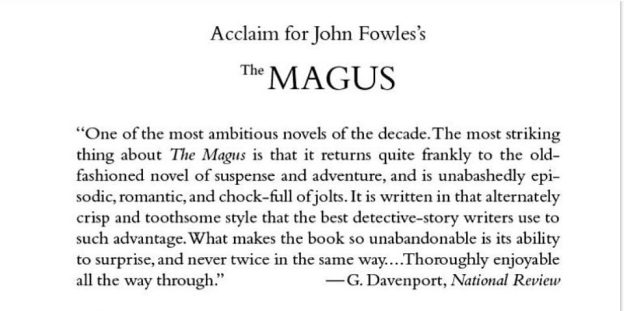Without a doubt, The IDF (Israel Defense Forces) is the voice of the Jewish-Israeli commonwealth ~ilana
NEW ESSAY IS “The Jewish State Is Genocidal, But Is Israeli Society Sick, Too?” It was a main feature on The Unz Review. A terser version, which I excerpt here, is “What Does the War in Gaza Show Us About Israeli Society?” on The New American, as well as “Sad To Say, but, By the Numbers, Israeli Society Is Systemically Sociopathic” on LewRockwell.com. Power & Market, at Mises.org, featured “Is Israeli Society as Sick as the Regime?” June 1.
https://www.ilanamercer.com/2024/05/jewish-state-genocidal-israeli-society-sick/
Excerpt:
…. That the Jewish State is genocidal is not in dispute. But, what of Israeli society? Is it sick, too? What of the Israeli anti-government protesters now flooding the streets of metropolitan Israel? How do they feel about the incessant, industrial-scale campaign of slaughter and starvation in Gaza, north, center and south?
They don’t.
In desperate search for a universal humanity—a transcendent moral sensibility—among the mass of Israelis protesting the State; I scoured many transcripts over seven months. I sat through volumes of video footage, searching as I was for mention, by Israeli protesters, of the war of extermination being waged in their name, on their Gazan neighbors. I found none.
Much to my astonishment, I failed to come across a single Israeli protester who cried for anyone but himself, his kin and countrymen, and their hostages. Israelis appear oblivious to the unutterable, irreversible, irremediable ruin adjacent.
Again: I found no transcendent humanity among Israeli protesters; no allusion to the universal moral order to which international humanitarian law, the natural law and the Sixth Commandment give expression. I found only endless iterations among Jewish-Israelis of their sectarian interests.
For their part, protesters merely want regime change. They saddle Netanyahu solely with the responsibility for hostages entombed in Gaza, although, Benny Gantz (National Unity Party), ostensible rival to Bibi Netanyahu (Likud), and other War Cabinet members, are philosophically as one (Ganz had boasted, in 2014, that he would “send parts of Gaza back to the Stone Age”). With respect to the holocaustal war waged on Gaza, and spreading to the West Bank, there is no chasm between these and other squalid Jewish supremacists who make up “Israel’s wartime leadership.”
If you doubt my findings with respect to the Israeli protesters, note the May 11 droning address of protester Na’ama Weinberg, who demanded a change of government. Weinberg condemned the invasion of Rafah and a lack of a political strategy as perils to both hostage- and national survival. She lamented the “unspeakable torture” faced by the hostages. When Weinberg mentioned “evacuees neglected,” I lit up. Nine-hundred thousand Palestinians have been displaced from Rafah in the last two weeks. Forty percent of Gaza’s population. My hope was fleeting. It soon transpired that Weinberg meant citizens of Israeli border communities evacuated. That was the extent of Weinberg’s sympathies for the “slaughter house of civilians” down the road. Hers was nothing but a lower-order sectarian sensibility.
The grim spareness of Israeli protester sentiment has been widely noticed.
Writing for Foreign Policy, an American mainstream magazine, Mairav Zonszein, scholar with the International Crisis Group, observes the following:
‘The thousands of Israelis who are once again turning out to march in the streets are not protesting the war. Except for a tiny handful of Israelis, Jews, and Palestinians, they are not calling for a cease-fire or an end to the war—or for peace. They are not protesting Israel’s killing of unprecedented numbers of Palestinians in Gaza or its restrictions on humanitarian aid that have led to mass starvation. (Some right-wing Israelis even go further by actively blocking aid from entering the strip.) They are certainly not invoking the need to end military occupation, now in its 57th year. They are primarily protesting Netanyahu’s refusal to step down and what they see as his reluctance to seal a hostage deal.’
Public incitement continues apace. Genocidal statements saturate Israeli society. The “lovely” Itamar Ben Gvir has provided an update to his repertoire, the kind chronicled so well by the South Africans (this one included). On May 14, to the roar of the crowd, Israel’s national security minister urged anew that Palestinians be voluntarily encouraged to emigrate (as if anything that has befallen the Palestinians of Gaza, since October 7, has been “voluntary”). He was speaking at a settler rally on the northern border of Gaza, in which thousands of yahoos watched the “fireworks” on display over Gaza, and cheered for looting the land of the dead and dying there.
“It’s the media’s fault,” you’ll protest. “Israelis, like Americans, are merely brainwashed by their media.”
Inarguably, Israeli media—from Arutz 7, to Channel 12 (“[Gazans need] to die ‘hard and agonizing deaths’), to Israel Today, to Now 14 (“We will slaughter you and your supporters”), and the lowbrow, sub-intelligent vulgarians of i24—are a self-obsessed, energetic Idiocracy.
These media feature excitable sorts, volubly imparting their atavistic, primitive tribalism in ugly, anglicized, Pidgin Hebrew. And, each one of these specimen always has a “teoria”: a theory.
Naveh Dromi is a lot more appealing in visage and voice than i24’s anchor Benita Levin, a harsh and vinegary South African Kugel. Dromi is columnist for a Ha’aretz, the most highbrow of Israel’s (center-left) dailies. Ha’aretz once had intellectual ballast. In her impoverished Hebrew, Dromi has tweeted about her particular “teoria”: “a second Nakba” is a coming. Elsewhere she has rasped a-mile-a-minute about “the Palestinians as a redundant group.” Nothing crimsons her lovely cheeks.
Such statements of Jewish supremacy pervade Jewish-Israeli media. But, no; it’s not the Israeli media’s fault. The closing of the Israeli mind is entirely voluntary.
According to a paper from Oxford Scholarship Online, the “media landscape in Israel” evinces “healthy competition” and declining concentration. “[C]alculated on a per-capita basis,” “the number of media voices in Israel,” overall, “is near the top of the countries investigated.”
Israel has a robust, and privately owned media. These media cater to the Israeli public, which has a filial stake in lionizing the Israel Defense Forces (IDF), in which each and every son and daughter serve. For this reason, avers Ha’aretz’s Gideon Levi, in his many YouTube television interviews, the military is the country’s golden calf.
Mainstream public opinion, Levi insists, molds the media, not the obverse.
Levi attests that right-wing and left-wing media are as one when it comes to the subject of the IDF and the Palestinian People. And in this, Israeli media reflect mainstream public opinion. It is the public that wishes to see nothing of the suffering in Gaza, and takes care never to disparage or doubt the IDF. For their part, military journalists are no more than embeds, in bed with the military.
At least until now, Israelis have been largely indifferent to their army’s orgiastic, indiscriminate bloodletting in Gaza. Most were merely demanding a return of their hostages, and the continuance of the assault on Gazans, punctured by periodic cease fires.
So, is Jewish-Israeli society sick, too?
When “88 percent of Jewish-Israeli interviewees” give “a positive assessment of the performance of the IDF in Gaza until now” (Tamar Hermann, “War in Gaza Survey 9,” Israel Democracy Institute, January 24, 2024), and “[a]n absolute majority (88%) also justifies the scope of casualties on the Palestinian side”; (Gershon H. Gordon, The Peace Index, January 2024, Faculty of Social Sciences, Tel Aviv University)—it is fair to conclude that the diabolical IDF is, for the most, the voice of the Jewish-Israeli commonwealth.
Consider: By January’s end, the Gaza Strip had, by and large, already been rendered uninhabitable, a moonscape. Nevertheless, 51 percent of Jewish-Israelis said they believed the IDF was using an appropriate amount (51%) or not enough force (43%) in Gaza. (Source: Jerusalem Post staff, “Jewish Israelis believe IDF is using appropriate force in Gaza,” January 26, 2024.)
Note: Polled opinion was not split between Israelis for genocide and Israelis against it. Rather, the division in Israeli society appeared to be between Jewish-Israelis for current levels of genocide versus those for greater industry in what were already industrial-levels and methods of murder.
Attitudes in Israel have only hardened since: By mid-February, 58 percent of this Jewish cohort was grumbling that not enough force had been deployed to date; and 68 percent did “not support the transfer of humanitarian aid to Gaza.” (Jerusalem Post Staff, “Majority of Jewish Israelis opposed to demilitarized Palestinian state,” February 21, 2024.)
Scrap the “hardened” verb. Attitudes in Jewish Israel have not merely hardened, but bear the hallmark of societal sociopathy.
When asked, in particular, “to what extent should Israel take into consideration the suffering of the Palestinian population when planning the continuation of the fighting there,” Jewish-Israelis sampled have remained consistent through the months of the onslaught on Gaza, from late in October of 2023 to late in March of 2024. The Israel Democracy Institute, a polling organization, found that,
‘[D]espite the progress of the war in Gaza and the harsh criticism of Israel from the international community regarding the harm inflicted on the Palestinian population, there remains a very large majority of the Jewish public who think that Israel should not take into account the suffering of Palestinian civilians in planning the continuation of the fighting. By contrast, a similar majority of the Arab public in Israel take the opposite view, and think this suffering should be given due consideration.’ (Tamar Hermann, Yaron Kaplan, Dr. Lior Yohanani, “War in Gaza Survey 13,” Israel Democracy Institute, March 26, 2024.)
Large majorities of the Israeli Center (71 percent) and on the Right (90 percent) say that “Israel should only take into account the suffering of the Palestinian population to a small extent or should not do so at all.”
Let us, nevertheless, end this canvas with the “good” news: On the “bleeding heart” Israeli Left; “only” (I’m being cynical) 47 percent of a sample “think that Israel should not take into consideration the suffering of Palestinian civilians in Gaza or should do so only to a small extent, while 50 percent think it should consider their plight to a fairly large or very large extent.” (Ibid.)
In other words, the general run of the Jewish-Israeli Left tends to think that the plight of Gazans should be considered, but not necessarily ended.
On the facts, and, as I have had to, sadly, show here, both the Israeli state and civil society are driven by Jewish supremacy, the kind that sees little to no value in Palestinian lives and aspirations.
LIBERTARIAN METHODOLOGICAL INDIVIDUALISM
Commensurate with the surveys shared above, and as many have quite reasonably concluded, Jewish-Israeli civil society is sick, too. As uncomfortable as it is for the libertarian methodological individualist; the facts dictate, alas, that, on the matter of the mass murder of the Palestinians of Gaza; Jewish-Israeli society does not stand apart from the Jewish State.
But if such generalizations can be made; don’t they betray the libertarian fidelity to methodological individualism?
No. Stating statistical verities does not violate methodological individualism.
Provided they are substantiated by hard evidence, not hunches, generalizations are not incorrect. To the contrary: Science relies on the ability to generalize to the larger population observations drawn from representative samples.
Human action is governed by probabilities and generalities. People make prudent personal and economic decisions in their daily lives as to where scarce and precious resources—one’s life and property—are best invested. They do so based on reliable, aggregated data or on shared common-sense assessments.
When broad statements and assessments about aggregate group characteristic are both true and crucial to our understanding; libertarian methodological individualists needn’t demand that these be expunged from our formulations.
So, while we must take great care as libertarian methodological individualists to separate state from society, and each member of society from the next—treating each individual on his or her merit in our dealings—generalizations about certain group characteristics are, in aggregate, valid. They do not in any way flout the imperative to treat each and every individual as an individual.
We risk disarming ourselves of the firearm of truth, analytical and empirical, if we discard the aggregate group findings surveyed so far.
With shuddering clarity, I can say then, that, in symbiosis, Israel—state, society—and its Anglo-European sponsors share the blame for the sacking of Gaza. Israelis, by and large, have become a solipsistic sorority of Jewish supremacists. Palestinians have paid a terrible price for this systemic Israeli sociopathy. …
….THE REST. NEW ESSAY, “The Jewish State Is Genocidal, But Is Israeli Society Sick, Too?, is a main feature on The Unz Review. “What Does the War in Gaza Show Us About Israeli Society?” is on The New American, as well as “Sad To Say, but, By the Numbers, Israeli Society Is Systemically Sociopathic” on LewRockwell.com.
https://www.ilanamercer.com/2024/05/jewish-state-genocidal-israeli-society-sick/
UPDATE (5/24): How diabolical is this American-English speaking IDF soldier? How emblematic!
Holy shit
— Benjamin Rubinstein (@BenFRubinstein) May 21, 2024
UPDATE 5/26: Sated settlers and offspring, a fat family, instruct their young on how to help starve other human beings. Refined spirituality.

This IDF soldier, fluid and forthcoming in a telephone interview, so eager to talk about his exploits in Gaza—he might wear fatigues, but he does not camouflage the wanton murder in his heart. He is what brave men would call a coward.
Updated 5/27 Memorial Day: A Poem
“The Final City.” A Poem by Samer Abu Hawwash, translated by Huda Fakhreddine
May 24, 2024:
The Final City
(to the soul of my soul)
In the ruins of this final city,
in this night of nights,
by your small bed
torn apart by monsters,
I stand naked,
stripped of myself
and of everything.
With these scarce hands I cradle you.
I embrace you and lift you up,
as far as my heart can reach.
How light you are now, my little one,
and how heavy this air.
How heavy this body
that once belonged to you.
I carry you,
but is this really you?
Can a man carry his soul
as a dead man carries his blood-stained shirt?
Is a man born from his own tears
as a tree is born from its leaves?
Is a grandfather born with his granddaughter
as a jasmine blossom is born with its scent?
I carry you, my little one,
as if I were carrying the stones,
the souls, the blood, the screams,
the shadows, the days, ….
….Complete poem, here, at the Literary Hub.
Updated 5/29: I have become an admirer of the Electronic Intifada led by Ali Abunimah, Nora Barrows-Friedman and their remarkable team.
https://www.youtube.com/@TheElectronicIntifada
EI’s quiet tone feels second nature. Their personalities shine.
This is their latest stream. https://www.youtube.com/watch?v=wlfFtT0WdnE A physician, Tarek Loubani, head of Glia solidarity physicians, gives one the most eloquent renderings of the acts of a “genocidal, maniacal army in Gaza.” “When I was in Ukraine,” says Dr. Loubani, who had brought his medical team to that battle theater, “I never worried that the Russians would bomb me.” “The Russians,” he attested, absolutely obey the imperative to respect medical teams. In Gaza, all medical teams are forfeit, targets for extermination by the IDF, have been targets for extermination.
Dr. Loubani also spoke to the imperative NOT to forgive those who have done nothing, said nothing, until now. Never forgive, never forget. Ali Abunimah chimed in and made a brilliant point:
People often reflect on history’s tragedies and their lessons. Said Ali, and I paraphrase: If you did nothing and said nothing during the genocide in Gaza, we KNOW EXACTLY WHAT YOU WOULD HAVE DONE DURING THE JEWISH HOLOCAUST. Absolutely nothing.
The august Mr. Tucker Carlson is a conservative with enormous political sway in powerful political precincts and among the people. He is purported to have persuaded former President Trump, in 2019, to lay off Syria. His X posts (which I have not followed since his near-complete silence on Gaza) receive tens of millions of impressions each.
Mr. Carlson is independent, untethered to a paying employer. He comes from money and, to his great credit, has made, some say, hundreds of millions more. Many months into the genocide in Gaza, Tucker lent his platform to a representative of the Christians of Palestine. Prior to that, came a quick Carlson quip about war crimes. Israel’s. Nothing much else of monumental significance.
To this, Mr. Carlson has since added some disinterested mumbling as to there being no US national interest in Gaza.
Never forgive, said Dr. Loubani.
Update (6/4/024) :
Israeli bombardment from the air, land, and sea continues to be reported across much of the Gaza Strip, resulting in further civilian casualties, displacement, and destruction of houses and other civilian infrastructure. Ground incursions and heavy fighting also continue to be reported, particularly in Rafah. Intensified hostilities following the issuance of evacuation orders and the Israeli military operation in Rafah have so far forced the displacement of about one million people, amid a decline in the entry of humanitarian aid.
Between the afternoons of 31 May and 3 June, according to MoH in Gaza, 195 Palestinians were killed and 720 were injured, including 40 killed and 150 injured in the past 24 hours. Between 7 October 2023 and 3 June 2024, at least 36,479 Palestinians were killed and 82,777 were injured in Gaza, according to MoH in Gaza.Treatment of more than 3,000 children suffering from acute malnutrition is at risk of interruption if nutrition supplies are not distributed, UNICEF warns.
No bakeries are currently functional in Rafah and public health concerns are beyond crisis levels in Khan Younis and Deir al Balah, according to the World Food Programme.
The Emergency Committee for North Gaza municipalities declared Jabalya town, Jabalya Refugee Camp, Beit Lahya and Beit Hanoun as “disaster zones.” Humanitarian space continues to further shrink, report UNRWA and the Protection Cluster.
Via 972: I would not wish to ever again associate with Israelis ever after the genocide.
Many people, especially young Palestinians, see the bloody history of the conflict and ask themselves, “How can we live with them after all they’ve done to us?” This is a sentiment that is almost certainly growing in the face of the current onslaught. (“Can Palestinians imagine a future with Israelis after this war?”)
Update 6/14/024: Extensive excerpt of “Sad To Say, but, By the Numbers, Israeli Society Is Systemically Sociopathic” on LewRockwell.com by Kevin MacDonald, in his “The Extreme Hyper-Ethnocentrism of Jews on Display in Israeli Attitudes Toward the Gaza War,” May 28, 2024.




